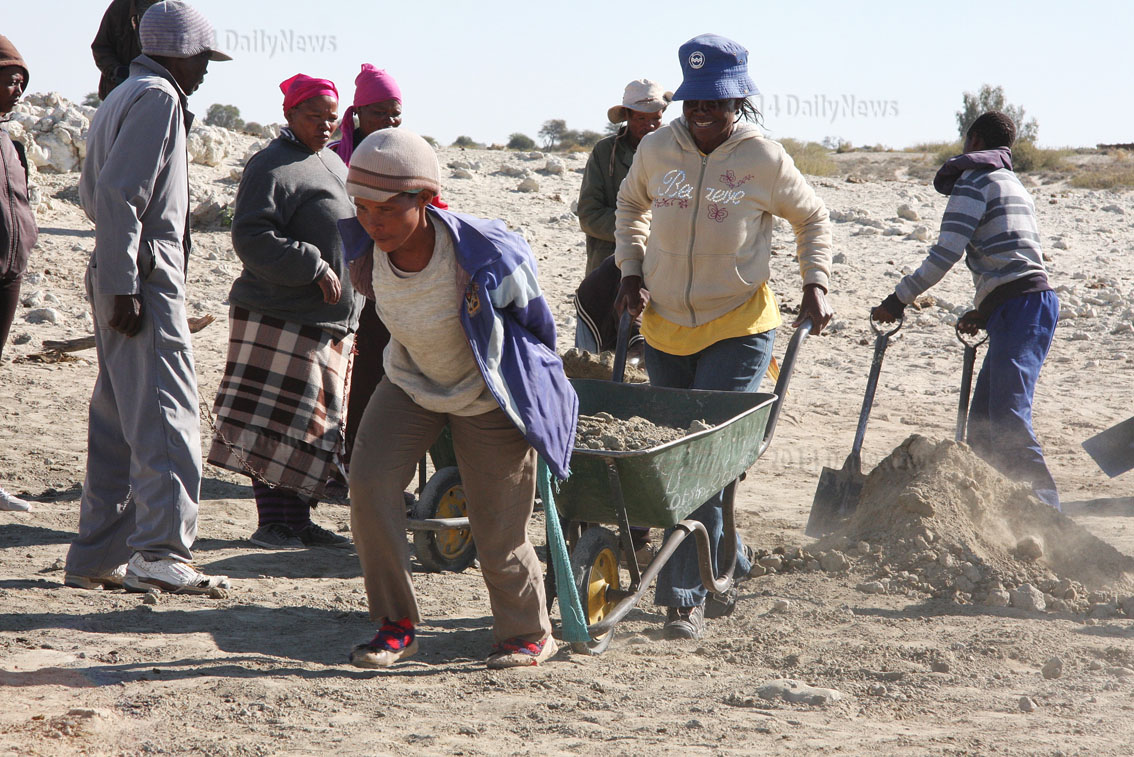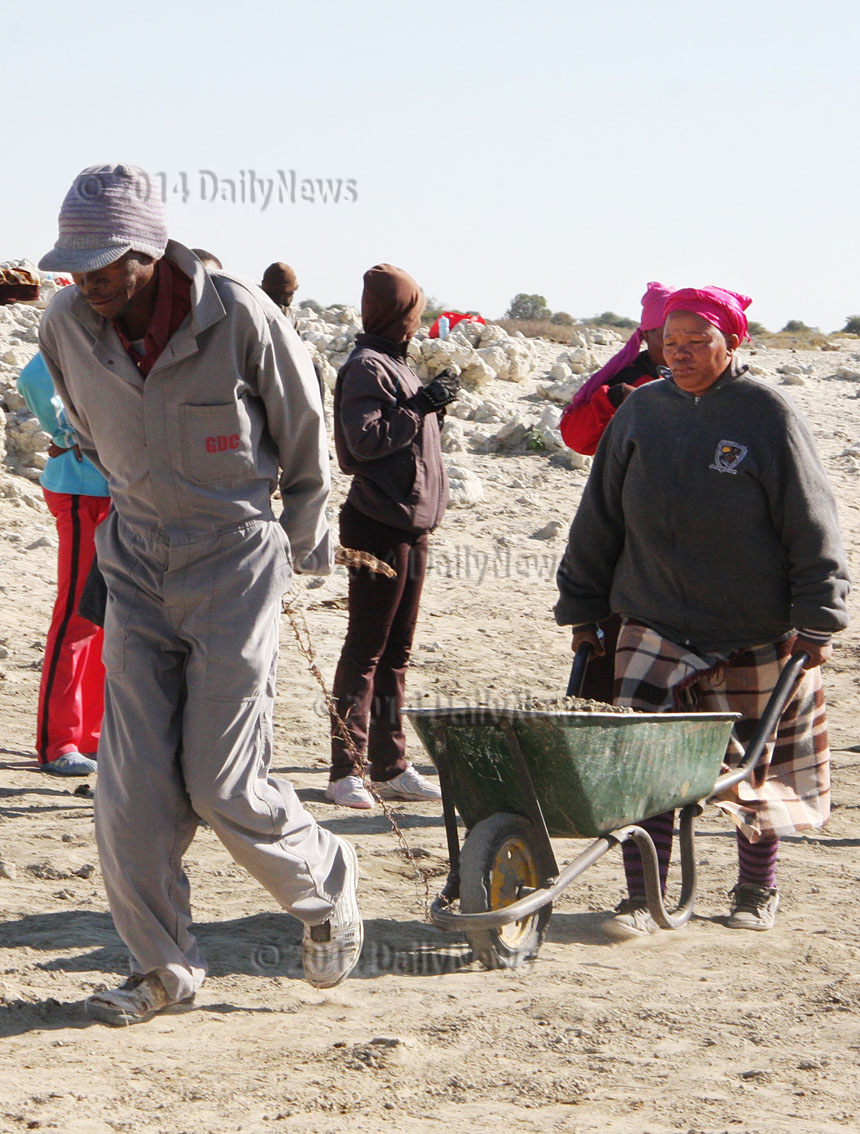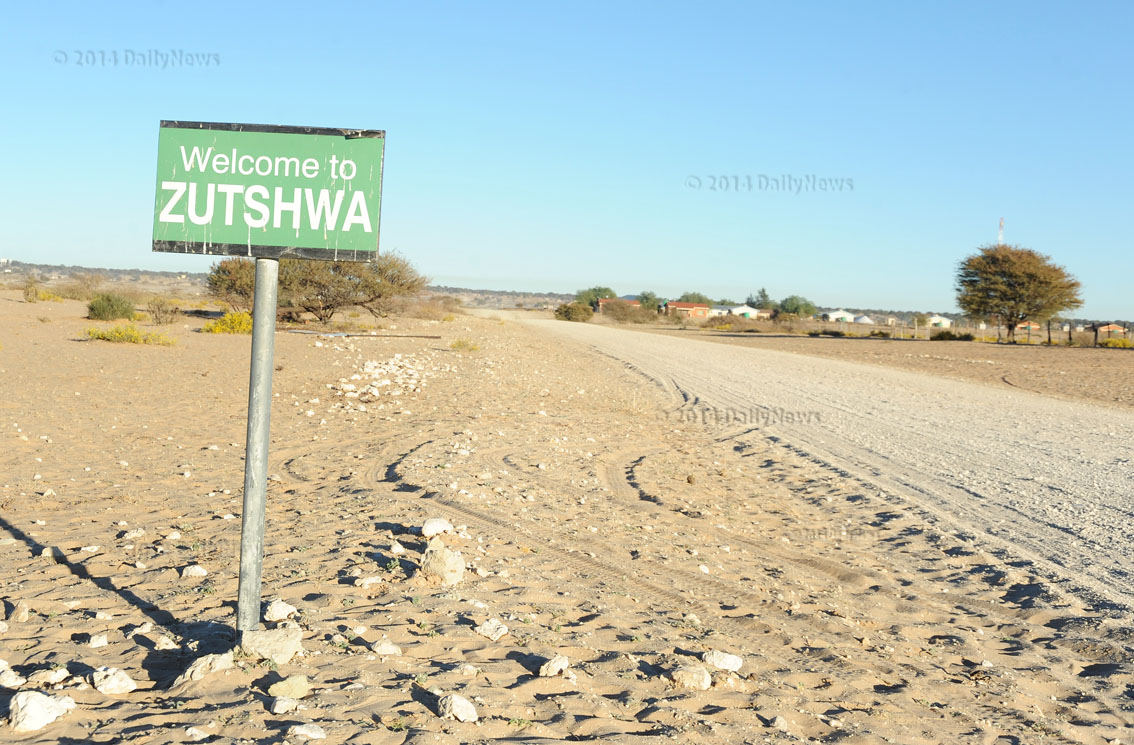Zutshwa residents see beyond now
07 Apr 2014
There is a common life style shared by most settlement dwellers around the country and Zutshwa settlement in the Kgalagadi District is no exception.
Situated some 56 kilometres west of Hukuntsi, Zutshwa is a predominantly Basarwa populated village. However, with a few Bakgalagadi living here, it is a typical rural settlement that has fewer and isolated homes.
As a settlement, it is needless to mention the fact that it lacks modern developments and life’s comforts found in urban areas. There is scarcity of employment opportunities unless someone swallows their pride and joins Ipelegeng which has apparently saved many souls around the country.
Being a university graduate and staying in the area with the expectation that you will find a job is a wild goose chase. As a result, the Village Development Committee (VDC) chairperson, Ms Tshoganetso Modise, said residents depended heavily on government’s generosity.
“Most of us work in Ipelegeng and he council gives us food rations,” said Ms Modise, adding that other residents were engaged either in Green Scorpion, volunteer Policing or work on farms.
Donkey carts are common means of transport within and outside the small village, and that kind of life style has made Zutshwa a unique place to live in, more especially during this era of fashionable automobiles.
Those who are not blessed enough to own carts are not worried because at least they have their own donkeys and horses to ride from one place to another. Walking long distances bare footed is also part of life here.
For someone who has experienced a modern way of life for longer period, living in such areas as Zutshwa is hell on earth. Meanwhile the residents have developed naivety to cope with hardship of the area.
In a nutshell, the hard knock life in Zutshwa can be further explained by the late tupac’s song The life we live, the live we don’t need. As a small village located far from Hukuntsi - the nearest major service centre - the VDC chairperson decried the shortage of services in the area.
“We are forced to travel to Hukuntsi for most of the services but it is too costly for us since we are economically poor,” she added. Alcohol consumption and teenage pregnancy are also worrisome factors of life in the area and there have been disastrous results such as HIV infections.
“The main problem is shebeens which operate throughout the day without observing the stipulated opening and closing times,” said Ms Modise, adding that shebeen owners were mostly not residents of Zutshwa; they exploited Basarwa without a twinge of mercy.
Further, she said a majority of Basarwa sold their RADP cattle, goats and sometimes food rations for alcohol; thereby defeating government’s effort to empower them.
She said violence was a common problem in the village because of high consumption of alcohol and drugs. The situation was worsened by the absence of police officers.
Unfortunately volunteer police cannot manage because some of the offences are beyond their jurisdiction. Ms Modise said they had once been promised two police officers but the promise had never materialised.
However, despite the problems facing the small village, she said the government was doing a good job by empowering the dwellers through RADP which gives the residents livestock freely and further their education after failing Junior Certificate.
The VDC chairperson described the economic empowerment programmes as a ball in the residents’ court as the government was trying by all means to empower them through LIMID, YDF and others.
The tiny village is also fortunate to have benefited from Nteletsa III project, thanks to an initiative by the government in partnership with Botswana Telecommunications Corporation a few years back.
“We offer services such as phone re-charging, photocopying and faxing, however the internet is always down,’’ she says.
She said they also acknowledged the government through Presidential Housing Appeal which has built seven houses for destitute persons which clearly shows how the government is committed to eradicating poverty.
She further said the government was leading a race of attainment of vision 2016 pillar of a compassionate, just and caring nation through taking philanthropic assistance very seriously.
Ms Modise, who is also a member of Botswana Khwedon Council, said they had pinned their hopes on the salt project which seems to be on the cards.
She explained that various government officials had visited the project and they were expecting money to resuscitate the project which will create more employment opportunities.Despite all the odds, Ms Modise remains optimistic saying with time, services would come to the place. ENDS
Source : BOPA
Author : Eric Raphuti
Location : HUKUNTSI
Event : Feature article
Date : 07 Apr 2014









